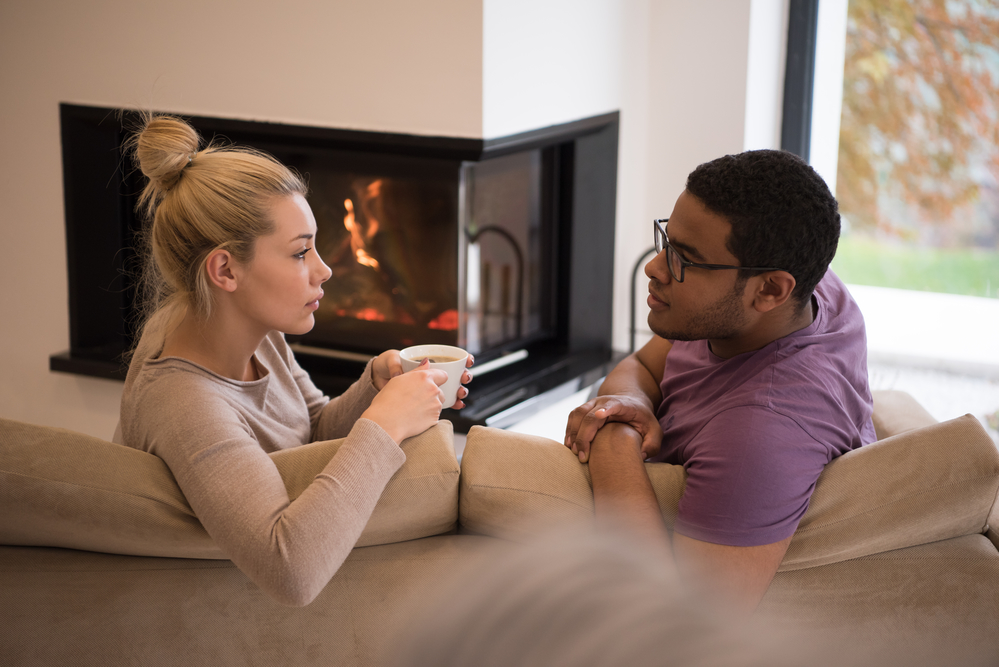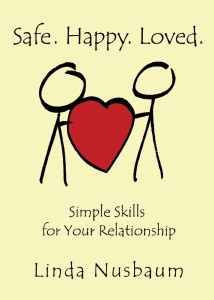Communicating feelings in a relationship can be hard. Clients sometimes ask, “I tell him how I feel! Why doesn’t it work?” Let’s look at some differences in how we communicate and the best way we can reach each other.
Some of us are very good at speaking what is happening to us when our feelings get hurt. I know I grew up that way, always saying what I needed to say and hoping someone would listen and help.
This is probably a lifelong habit that many of us are very used to. But some of us in this world are not talkers. Maybe you are partnered with one. I am. He is great at a lot of things, but he doesn’t need to talk about what is happening to his insides. I do.
Communicating Feelings in a Relationship Doesn’t Always Go As We Hoped

This is sometimes a difficulty in a relationship. One emotes and the other doesn’t say anything. I know some of my clients appear very frustrated and they tell me, “I always tell him how I feel.” And then they follow that with something like, “But he never responds.”
This is a problem. I know that when talkers who have a lot to speak about say what is important to them, they want to know that their speech has landed, and landed well. This means that the partner is supposed to listen to what is being said and say something about what they heard.
But I often hear from the partners who tell me they hear the same thing over and over again, and this is like numbing to them and they can’t take it.
Communicate Feelings in a Relationship Without Blame or Criticism, to be Most Effective

So, you can see that this system is not working for both of them. Let’s do something a little different so both can be understood. I know when I have something to say to my partner, I have to figure out how to say it without blame or criticism. If I tell him, “You did such and such,” he will immediately start to defend himself or show me an example of where I did the same thing.
This is not satisfying at all. I do not want to get into a discussion about who is right, I just want him to listen to my hurt feelings. And this is what the talker always wants. To be heard and understood.
But remember how I approach my partner? I make sure there is no blame or criticism, because no one likes to feel responsible for another person’s feelings. Effectively communicating feelings in a relationship means putting things in terms that won’t cause your partner to shut down and become defensive. Think about how you might tell your partner that your feelings got hurt. It takes some practice, but it really works.
You might want to say something like, “Remember that moment when you said ‘[so and so]?’ You probably didn’t mean to hurt my feelings, but when you said that I felt (ignored, left out, dismissed, invisible you choose.)
Be Calm and Kind to Get Your Feelings Across

We can’t help how things hit us. Sometimes, out of the blue, I will get hit with something my partner said. I don’t plan it, it just happens. But instead of getting mad and yelling at him, I will figure out what happened and tell him without provoking him. Because what we all want is to be understood, not get in a fight.
This is one way to handle the differences. You are right if you are a talker-about-feelings. Your partner is right too if he or she is not a talker-about-feelings. We all come to earth the way we come. Now, the big question: can we make room for the differences in our relationship? That’s the real test.
Find Your Way Back to the Love You Share
Read a Book About Relationships
To learn how you and your partner can better reach each other and communicate feelings in a relationship just like yours, read Linda’s book Safe. Happy. Loved. Simple Skills for Your Relationship. It might just help the two of you feel closer, more understood, and loved. Give it a read.
Get Couples Counseling
Come in for couples counseling. Couples counseling can help you and your loved one get the most out of your relationship. It'll equip you with coping strategies and tools for communication that can help you argue less and love more.


